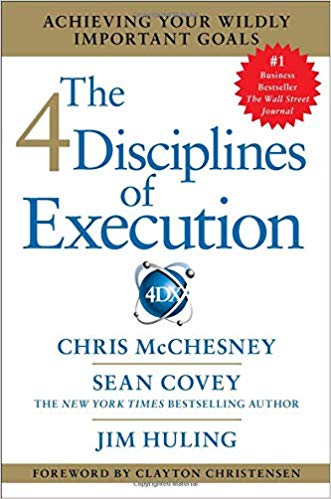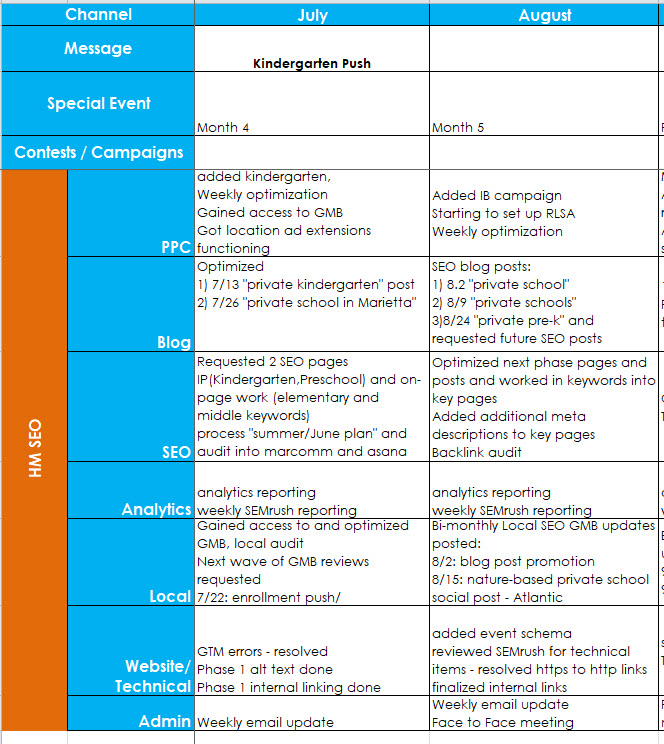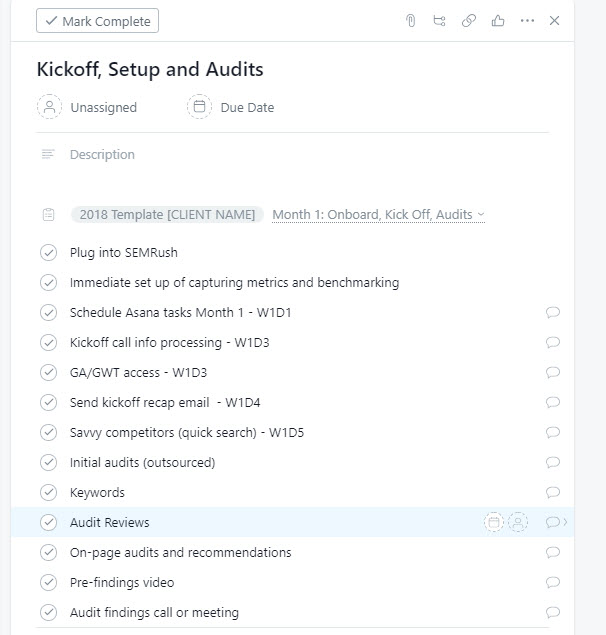
Here’s a formula I’m sure you’re familiar with:
we’re busier than ever + an evolving, complex discipline with many moving parts like SEO = a channel that is easily pushed to the wayside despite best intentions.
After years of specializing in SEO and working with in-house marketers who are responsible for doing not only just SEO but also a million other things too – it finally dawned on me that there is a larger problem at stake. A necessary skillset that is not formally taught in schools. A weak spot that may be holding you back:
Shabby SEO project management skills.
If you’re wondering if you fall into this category, here is what this “looks” like:
- Confusion about what to do on a regular basis for SEO improvements; this leads to months going by without solid, consistent SEO execution and thus a failure to ever get momentum
- A misguided belief that SEO doesn’t work so you’ll turn to inbound marketing/account based marketing/content marketing/social media marketing instead because its more concrete and visible
- You don’t really know what worked this month and what didn’t because looking back you’re not really sure what activities you worked on that directly moved the needle
- Nobody is getting you content, resources are not enough, recommendations are not getting implemented, and you’re stuck in a rut
This is the “Before” picture. Before we get into what the “After” makeover picture looks like, let’s talk about why modern marketers who are responsible for brand awareness must step up their game.
Why Digital Marketers Need Better SEO Project Management Skills
Before we dive into the details, there are two things you must address and confirm: first, you need to make sure that SEO is meeting a priority need for the organization. Goals and priorities shift, and if you’re trying to push through an initiative that no one else is focused on or currently sees the value in, you are pushing a boulder up a steep hill. Second, you need to make sure that you actually do know what to do. There are a ton of resources that you can peruse all day long, but if you have to get down to business quickly, I suggest using a paid tool like SEMrush which will give you priority recommendations and will help you monitor your efforts and progress. (affiliate link – this is what I personally use to manage clients on a one-time and monthly basis as well as do my full keyword research with.)
However, if SEO is legitimately meeting a viable organizational need, then read on. Because there is much more to being a great SEO than just execution. Here are 3 important reasons all marketers need to strengthen their project management skills:
- Very frequently the SEO person has transitioned from a “doer” to a “delegator.” SEO is one of those channels that truly carries across multiple other disciplines. As I say, it’s often a LAYER you apply to different marketing channels: PR and outreach, on-site and off-site content creation strategy and execution, social media, website design and development. We also use SEO today to inform user experience, target market research, and to make decisions about the best top of funnel activities. Unless you’re a marketer in a small organization who wears all of the above hats, there are probably multiple people who work in these different roles and whose activities will contribute to SEO.
- The value of what you do needs to be explicit, not implicit. When you show your worth and value, you have a much more solid rock to stand on to negotiate raises, increase your fees, and climb the ladder to your desired destination. This means that you have to build in space for managing, and not always doing. When you have the ability to move your digital marketing projects forward and achieve results, you’ll have better case studies and more wins under your belt.
- While SEO does involve ongoing work, I consider it a “strategic initiative” because there is a significant amount of one-time work that needs to be done before you can settle into “maintenance” mode. And that one-time work often falls on the execution shoulders of several others (see point #1 above).
If SEO project management isn’t an area you have dedicated attention to, all hope is not lost. The first step to overcoming obstacles is recognition and acceptance, right? Now let’s do something about it!
4 Ways to Strengthen Your SEO Project Management Skills
So now that we’ve painted the “before” picture, lets’ review 4 easy ways to quickly strengthen your marketing project management skills:
1. You Must Recognize and Escape the Whirlwind That Fills Up Your Weekdays

Two years ago I learned about a concept called the “whirlwind.” Understanding this has been a total game changer. I learned about “the Whirlwind” from The 4 Disciplines of Execution: Achieving Your Wildly Important Goals and I wrote about this concept here:
We know it’s the strategic projects and initiatives that move us forward in our business and in our jobs: so why are they so hard to tackle? According to Chris (the author), people are not lazy, or stupid or defiant. They’re busy. Really freaking busy!
And this is “the whirlwind.”
The whirlwind is so omnipresent we don’t even know it’s there. We don’t even see it. It’s invisible to us. The whirlwind is the massive amount of energy that’s necessary just to keep operation going on a day-to-day basis. Doing your day-to-day job entails being in a giant whirlwind of responsibilities. It’s human nature to choose urgency over important strategic initiatives that are over and above our daily responsibilities. Unless we’re conscious of it and can actively work, every day, to make different decisions.
Important projects rarely get killed off quickly. They die through slow suffocation. This is the enemy of momentum and results. This is so true of SEO initiatives. A page optimized here. An email to a developer to inquire about fixing site speed there that goes into the void. 3 months go by before SEO is touched again. This is what SEO dying through suffocation looks like.
Are you stuck in the whirlwind, which is killing your SEO momentum? If constantly find yourself letting urgent tasks take over your strategic initiative execution time, you’re probably stuck in the whirlwind and will need to take proactive steps with proactive conversations to rise above.
2. Document, Document, Document…..Document
If I’ve learned anything over my years of managing large SEO projects (where action items are largely executed by others), it’s the importance of clear and simple, consistent documentation. SEO is still one of those activities that rarely leaves a footprint. If you didn’t write it down, it didn’t happen. It’s not like social media marketing where you can clearly point people towards a page populated with content and engagement. Plus, what you need to do is not only custom for every site, it’s also not black or white; Google is often vague about how much weight is assigned to various ranking factors. SEO relies on making our most educated guesses, and there are multiple activities that need to be done in order to get momentum. So the importance of documenting…:
- what you are trying to achieve
- what goal it’s mapped to
- what exactly you (or someone else) is going to do and by when
- as well as post-execution what was done specifically in the SEO bucket and how long it took…
is important. That way when you look back over your analytics you can clearly attribute progress (or lack thereof) to the specific set of activities. Success and making actionable insight on monthly analytics is reliant on clearly documented goals, strategies that will achieve the goals, and diligent tracking of activities implemented.
Otherwise you’re just flying by the seat of your SEO pants. Here is a screenshot of one of my monthly activity reports where I plot in ongoing and one-time activities that will be done monthly. This high-level picture lets me project ahead specific activities as well as guides me to what I committed to for the month:

3. Track Tasks through to Completion:
SEO has what seems like an infinite amount of moving parts. If I’ve learned anything over my years of managing large SEO projects (where implementation and action items are largely executed by others), it’s the importance tracking with a task management system. I want to make sure that action items, distributing best practices, asks and requests, and follow ups do NOT live (and thus die a slow death) in email alone.
I personally use Asana as my go-to task management system. I’m in there daily logging tasks and follow ups to ensure things don’t slip through the cracks.
Asana, combined with Tsheets as my time tracking tool, helps me get everything I’m holding in my head out into action and reporting.

4. Step It Up As a Leader
This last tip is often easier said than done. But really, to maximize your effectiveness, you must step it up as a leader without being an a-hole. Many years of doing this later I’m still surprised how many clients caution me about not stepping on another department’s toes. They’re nervous about navigating internal politics since SEO does have so much disciplinary cross over. To get things done, you have to walk a fine balance of being an effective leader but also being a team player. To walk that line, I wholeheartedly recommend the books Power: Why Some People Have it and Others Don’t and Fierce Conversations.
Being a more effective SEO project manager might mean pushing back. Or having proactive conversations that you usually avoid. Or asking for creative collaboration and brainstorming if your initial request gets rejected. Play nice but get things done with the velvet hammer. The ability to influence change is important.
Many SEO problems can be overcome by better project management: committing to strategic initiative execution, improving documentation skills, tracking tasks through to completion, and stepping up your leadership skills.
(note – affiliate links used are only for products I LOVE and personally use)
SEO |